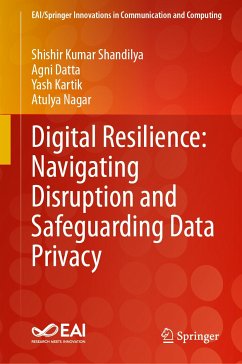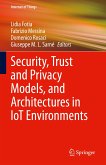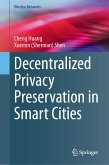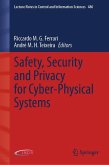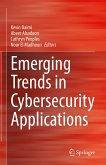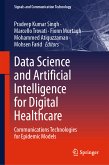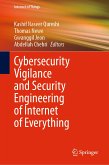This book offers an in-depth overview of digital resilience, defined as the ability of individuals, organizations, and societies to adapt to and counter various digital threats such as cyberattacks, data breaches, and other forms of cyber threats. Digital resilience not only enables proactive measures but also ensures fault-tolerant planning and design. The book elaborates on the necessary techniques and methods to achieve digital resilience. Key methodologies, including quantum computing, post-quantum cryptography, nature-inspired cybersecurity, zero-trust systems, zero-knowledge proofs, multi-party computation, and the emerging field of space security, are discussed in detail. The book provides insights into artificial intelligence and machine learning, examining their impact on society and organizations. It critically analyses the role of cybersecurity in businesses, emphasizing its importance for safety and economic stability. In addition, the book discusses notable cyber incidents, offering valuable insights into digital resilience. It serves as a comprehensive compilation, featuring key terms, definitions, case studies, and references to existing literature and research in cybersecurity, analytics, information sciences, future computing, digital resilience, and related fields.
Dieser Download kann aus rechtlichen Gründen nur mit Rechnungsadresse in A, B, BG, CY, CZ, D, DK, EW, E, FIN, F, GR, HR, H, IRL, I, LT, L, LR, M, NL, PL, P, R, S, SLO, SK ausgeliefert werden.

